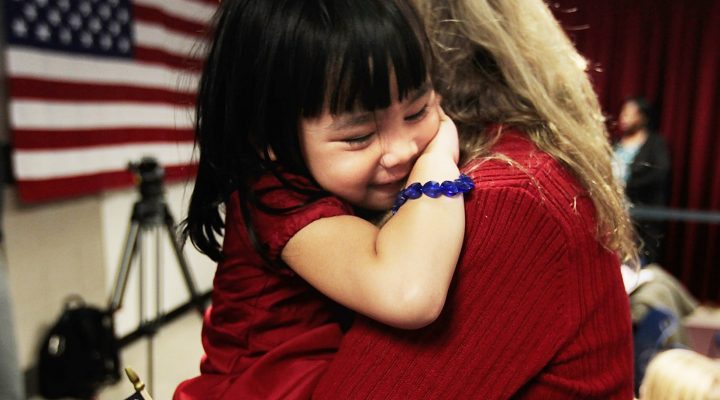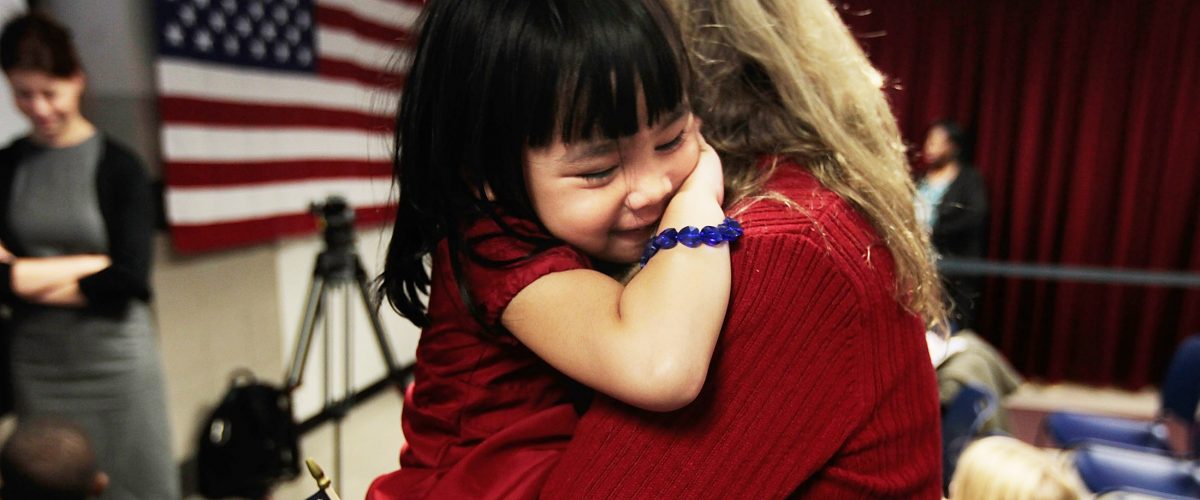China has halted its decades-long practice of allowing citizens of other countries to adopt Chinese children, surprising agencies that have worked with the communist country for decades and disappointing many families whose costly, years-long efforts suddenly have come to an end.
“We were blindsided,” said Karla Thrasher, who has worked for two decades as senior director of international adoption for Lifeline Children’s Services, an evangelical nonprofit based in Birmingham, Ala., that works in 19 U.S. states. “We actually thought things were moving in a more positive direction.”
In the past, China had been a leading source of international adoptions. Some 82,000 Chinese children, nearly all with some form of disability, left orphanages to be adopted by American families.

Karla Thrasher
China paused adoptions in 2020 during the global COVID pandemic. At the time, Lifeline was working with 100 U.S. families who already had been matched with children from China. Since then, the process has slowed, and adoptions have not again risen to pre-COVID levels.
The U.S. State Department emailed a number of adoption agencies on Wednesday, Sept. 4, to break the news, which China officially announced the next day. Thrasher and her team got to work, quickly setting up a Zoom meeting for Wednesday afternoon with a couple dozen families.
“Some were sad, some were angry, but overall, they were shocked,” said Thrasher, who called the sudden shift “surreal.”
One disappointed family on the Zoom call has been waiting more than five years and actually hosted their adoptive child — an older blind boy — for a brief 2019 visit to their home.
“The family had fallen in love with him and was ready to make him a part of their family,” Thrasher said. Other families had communicated with the children they hoped to adopt through Zoom calls, sent them presents and received photos of the Chinese families.
China gave no reasons, but a possible culprit is deteriorating relations between the U.S. and China over the last decade:
- During that time, the two countries have gone “from genial business partners to bitter adversaries” Florida Sen. Marco Rubio wrote Monday in the Washington Post.
- In April, President Joe Biden signed a bill passed by the House and the Senate requiring the popular social media app TikTok to divorce itself from its Chinese owner, ByteDance.
- At the time, House Speaker Mike Johnson called China “America’s largest geopolitical foe.”
Lifeline also cited an “overall decline in adoption numbers worldwide” in its report, “The Landscape of International Adoption in 2024.” China has grown economically and is now promoting in-country adoption, joining Ethiopia, Russia and Kazakhstan with its shift, according to The New York Times.
For periods of time in the late 20th century and early 21st century, all these countries have placed children for adoption with U.S. families. Faith-based groups have been leaders in facilitating these international adoptions.
Other factors may have influenced China’s shift:
- After decades of enforcing a strict one-child-per-family policy, China is experiencing population decline and low birth rates, meaning there may be fewer children available for adoption.
- The Times also reported that some Chinese see international adoptions as a national disgrace.
“We’ve seen an overall decline in the numbers of international adoptions as, thankfully, more countries are pursuing domestic adoption,” said Thrasher, who is less concerned with geopolitics than children. “Our first, very strong reaction was sadness for children that will continue to wait without the education and medical care they need, and without the care of a mother and father.”


